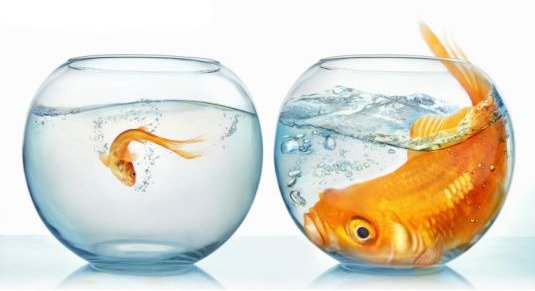Positive - (e.g clean)
Comparative- (cleaner)
Superlative - (the cleanest)
When I was younger, I aimed for superlative degree and always failed, or maybe, on a second thought, succeeded in attaining the superlative degree of the least and the worst (the worst case scenario, the least courageous, the best in losing what wanted or needed most!)
The act of comparing is a human ability and can become one of our biggest problems. The state of being compared can either be a drawback or a launch forward. The capability of being compared is an art and special rules should be placed. Degrees of superiority or inferiority in quantity, quality or intensity are usually displayed. I have nothing against degrees it’s just the feeling of inferiority or superiority that they might create that I do not like.
I found out that the comparative form was better than the superlative because I might know what is BEST for me, but I can’t reach it. Too superlative, too far away, too over promising, too under delivering. I prefer better than something else and it’s through the process that I end up choosing the right path for me to follow. Because I trust myself and my process and compare myself to who I was the day before and to what I want to be the day after.
Adverbs are used to express how something is done. I like them because they describe an action, a behavior. Adjectives express how someone or something is. I use them less because they are never true, since our real self most of the times hides from us and always changes. “The dog sleeps quietly is different than the dog is quite.” Carl Rogers conceives the process of change in therapy as being along a continuum, from a position of being totally closed to one of being open and continuing to change. We follow a process of movement from “fixity to flowingness” and this process of growth and change never ends until we exhale our last breath. Only then can we say that we experienced life as the best versions of ourselves.
Do not get me wrong I believe in the superlative because I like studying the best, I want to know why someone succeeds not why they fail, I do not seek for the average because the average is something you see – I do not ignore it, but instead I benefit from the best because that’s how I prescribe my life. Self-concept is destiny, but I do not compare myself to the best, I aspire to the best. And the best will eventually arise after constantly choosing the comparative form of being better than yesterday.
Always ask : “How can I become better, happier, more competent…” This is the most important of all questions - do not compare yourself to anyone else!

We raise self esteem by praising, not comparing. Always praise yourself, be kind, gentle and persistent to the process. Superlative in the expectations, belief, trust but comparative in performances in the real world. In other words, be realistic when it comes to short term goals and optimistic to long term goals. We always move along with the process as a continuum so the experience of the self is not distant and intellectualized, but warm, internal and clear. This basic trust in the process of our self actualization should be the only form of comparison we accept keeping always in mind that we are never whole or complete at one or another stage of the process.
Do not stick to a dream, a farfetched situation of climbing the mountain Everest of ourselves, of being the happiest, or the best - just make the first step towards it.
Emphasize on individuality, we all have our own way, our own time, our own map to draw and follow. We pass through stages and each one of us is unique in how they pass the stages, how they remain there and how they experience it.
Focus on the process of becoming a person and you will eventually become the person you are, in the best version of yourself!